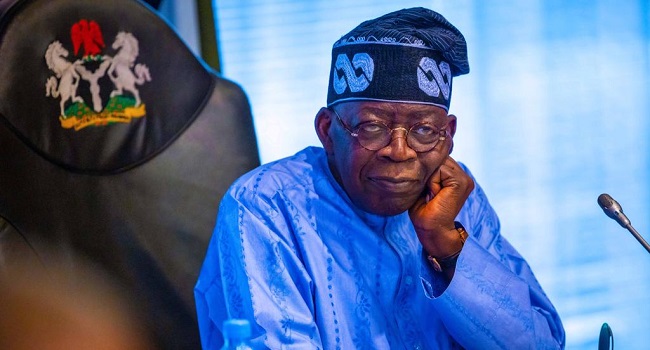Nigeria’s burgeoning debt burden has become a critical concern, consuming a disproportionate share of government revenue and jeopardizing the nation’s fiscal stability. In the first nine months of 2024, debt servicing devoured 47% of the Federal Government’s total expenditure, a staggering N8.94 trillion, representing a 56.8% surge compared to the same period in 2023. This alarming trend underscores the nation’s increasing reliance on borrowing to finance its operations, a vicious cycle exacerbated by widening fiscal deficits. The debt-to-revenue ratio, a key indicator of fiscal health, paints a grim picture, soaring from 132% in 2023 to a perilous 147% in 2024. This signifies that Nigeria is not only borrowing to cover expenses but also to service existing debts, a precarious fiscal trajectory raising serious doubts about long-term sustainability.
The escalating debt servicing costs are crowding out essential expenditures, particularly capital investments crucial for infrastructure development and economic growth. While recurrent expenditures, encompassing personnel costs, pensions, transfers, and debt servicing, witnessed a substantial 45.6% increase, capital expenditure only saw a modest 20.8% rise. This disparity highlights the government’s struggle to balance its obligations with the need for critical investments. Despite efforts to allocate more funds to infrastructure, the overwhelming burden of debt repayment continues to stifle development and limit the country’s economic potential. The fiscal deficit further widened by 39.3%, reaching N12.89 trillion, emphasizing the growing gap between government revenue and expenditure. This precarious fiscal imbalance is further compounded by the escalating debt servicing costs, leaving limited resources for essential public services and developmental programs.
The government’s narrative on debt management appears to contradict the stark reality revealed by the data. President Bola Tinubu, in his Independence Day address, claimed a significant reduction in the debt service ratio from 97% to 68%. He emphasized his administration’s commitment to breaking the cycle of overreliance on borrowing and the associated strain on scarce resources. However, the CBN data reveals a worsening situation, with the debt service ratio reaching 147%. This discrepancy raises questions about the accuracy of the presented figures and the effectiveness of the government’s debt management strategies. Furthermore, global credit rating agencies like Fitch project a further increase in Nigeria’s external debt servicing obligations, despite the government’s stated focus on domestic borrowing.
Experts and analysts offer a bleak outlook, predicting continued pressure on Nigeria’s debt levels and servicing costs. They anticipate that financing costs will continue to consume a significant portion of government revenue, particularly in the context of a weak local currency and a tight interest rate environment. The consensus is that there is no immediate relief in sight, and the country faces a challenging path towards fiscal sustainability. Economists like Professor Adeola Adenikinju emphasize the unavoidable nature of debt servicing obligations, highlighting the long-term consequences of past mismanagement and dependence on borrowing. He laments the lack of positive economic impact from debt servicing, noting that it does not contribute to infrastructure development or economic growth, but rather represents a drain on resources.
The IMF echoes these concerns, pointing out that Nigeria allocates a majority of its revenue to debt servicing, leaving little room for crucial development projects. They emphasize the urgent need for Nigeria to implement more effective revenue mobilization strategies, including broadening the tax base and establishing a transparent and efficient tax collection system. This call for improved fiscal operations aligns with the concerns raised by experts and underscores the importance of addressing the underlying revenue challenges. Furthermore, President Tinubu’s appeal to world leaders for debt forgiveness for developing countries highlights the severity of the situation and the need for international cooperation in addressing the debt burden.
The prevailing narrative surrounding Nigeria’s debt crisis is one of concern and urgency. The escalating debt servicing costs, coupled with widening fiscal deficits and limited revenue generation, pose a significant threat to the nation’s economic stability and long-term development prospects. While the government claims progress in debt management, the data paints a different picture, highlighting the need for more effective and transparent fiscal policies. Experts and international institutions alike emphasize the urgency of addressing the underlying revenue challenges and implementing sustainable debt management strategies to steer Nigeria away from this precarious fiscal trajectory. The call for debt forgiveness adds another layer to the complex situation, underscoring the need for international support in navigating this challenging economic landscape.














